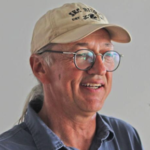Today's our first official episode of Revolution Science, a series of episodes about the major revolutions that have occurred throughout human history. And it all begins with fire. In this episode, we start by going over the definitions of revolution and evolution. Then we get into describing some of the main theories behind why we think fire is potentially the first revolution for humans.
Here are some of the main ideas we talk about:
- IndigiFacts about the oldest human fossils
- The earliest evidence of fire use by humans
- The different types of evidence
- The "Cooking Hypothesis" and human evolution
- Different uses of fire and its effects on plants
~
Links & Resources:
Evidence of fire use: 1, 2, & 3
Control of Fire in the Paleolithic
Human Brain Expansion during Evolution Is Independent of Fire Control and Cooking
The discovery of fire by humans: A long and convoluted process
The nutritive value of cooked camas as consumed by Flathead Indians
~
Like this show? Leave us a review here... even one sentence helps! And if you leave your Twitter handle we'll be sure to thank you personally!
You can also Support the Show on PayPal.

Patrick Yawakie has been working on food sovereignty and voter awareness for years, and we finally got him on the show. We talked about...

Tim Ryan is an expert on heritage skills, tool making, and the history of intermontane tribes of the Northwestern United States. He's currently the ...

On today's show, we interview Dr. Robin Kimmerer. She's our major professor in the Sowing Synergy Program, she's an amazing botanist and the author...